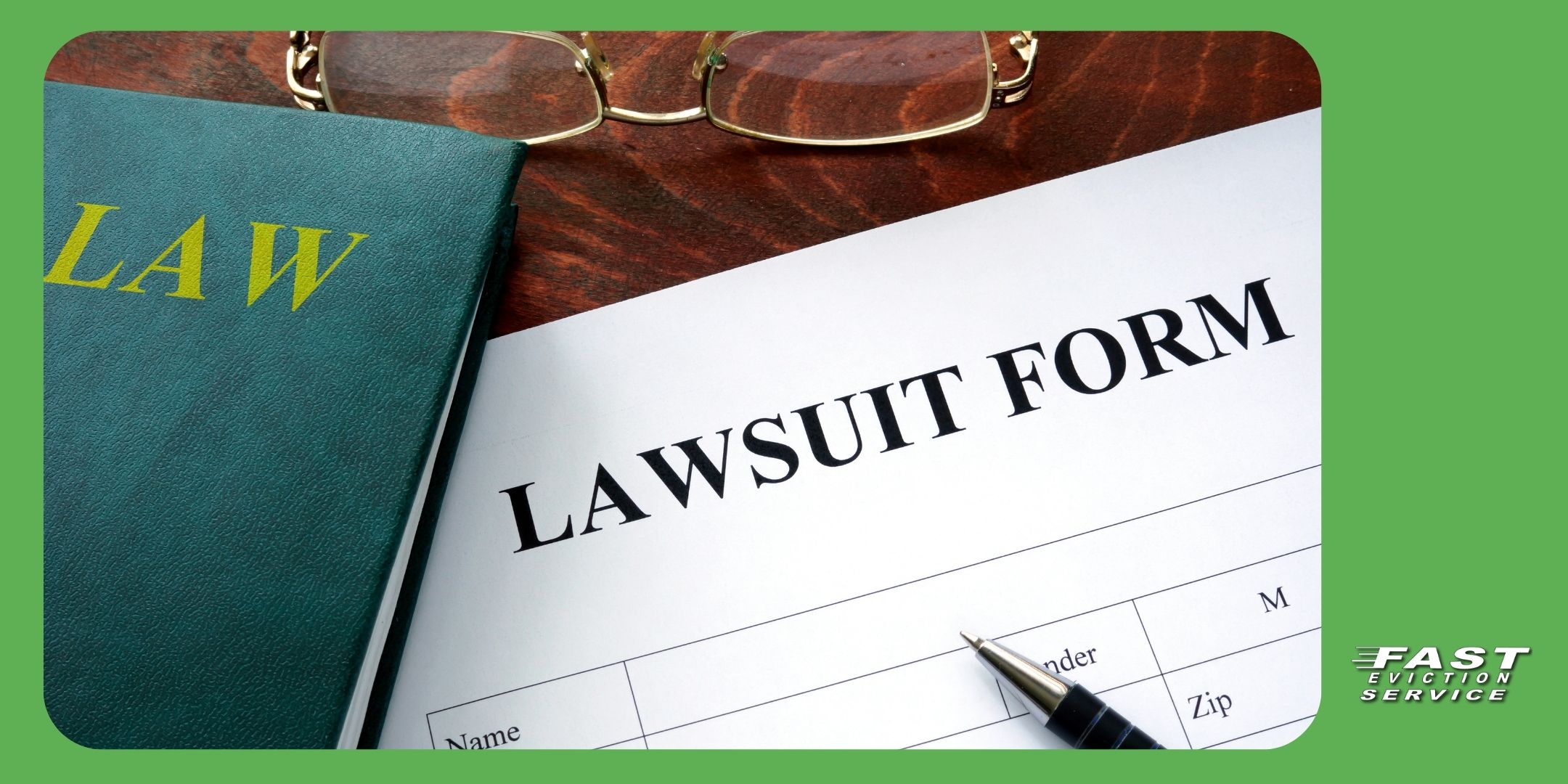Updated 12/27/24
Being a landlord is a challenging yet rewarding responsibility. One of the more stressful scenarios landlords may face is deciding whether to take legal action against a tenant. While lawsuits are not always the first course of action, there are times when they become necessary to protect your financial interests or uphold the terms of a lease. But is suing a tenant worth the time, expense, and emotional toll?

This article will explore the pros and cons of suing tenants, when and why a landlord might consider filing a lawsuit, and how to approach this decision responsibly. We’ll also address common concerns, such as suing for damages, recovering unpaid rent, and even pursuing emotional distress claims.
Table of Contents
- Why Landlords Sue Tenants
- The Pros of Filing a Lawsuit
- The Cons of Filing a Lawsuit
- Common Scenarios: When Can a Landlord File a Lawsuit?
- Alternatives to Suing Tenants
- Frequently Asked Questions
Why Landlords Sue Tenants
Landlords may sue tenants for a variety of reasons, most commonly for financial losses or property damage. For instance, a landlord suing for damages might need to recover the cost of repairs after a tenant has left the property in poor condition. Similarly, unpaid rent is another frequent reason landlords turn to the courts, especially when the amount owed is significant and other collection efforts have failed.
Another reason for legal action is the breach of lease terms. For example, if a tenant subleases a property without permission or violates pet policies, the landlord may file a lawsuit to enforce compliance. In rarer cases, landlords may sue tenants for emotional distress caused by harassment, threats, or other egregious behavior.
Understanding the potential outcomes of these lawsuits is crucial to determining whether legal action is the best path forward.
The Pros of Filing a Lawsuit
One of the primary advantages of suing a tenant is the potential for financial recovery. Court judgments can compel tenants to pay what they owe, whether it’s unpaid rent or costs associated with damages. A landlord suing for damages can also deter tenants from neglecting their responsibilities, encouraging better compliance with lease terms.
Another benefit is the enforcement of legal rights. By pursuing a lawsuit, landlords can demonstrate that they take lease agreements seriously. This can set a precedent for future tenants and establish a reputation as a landlord who values accountability.
Finally, pursuing legal action may provide emotional closure in situations where a tenant has caused significant stress or hardship. Knowing that you have taken steps to address the issue can be a relief in itself.
The Cons of Filing a Lawsuit
On the flip side, lawsuits are often time-consuming and expensive. Filing fees, attorney costs, and the potential for lost work hours can add up quickly. For landlords asking, “Can a landlord file a lawsuit against a tenant without incurring major expenses?” the answer often depends on the complexity of the case and local legal fees.
Additionally, the outcome of a lawsuit is never guaranteed. Even with a strong case, collecting a judgment can be challenging if the tenant has limited financial resources. Winning a lawsuit on paper may not translate to actual recovery of funds.
There’s also the emotional toll to consider. Lawsuits can be stressful and prolonged, impacting your peace of mind. Negative publicity or damage to your reputation may occur, particularly if the case becomes contentious.
Common Scenarios: When Can a Landlord File a Lawsuit?
Landlords can file lawsuits for a variety of reasons, including:
- Property Damage: A landlord suing for damages might do so when the cost of repairs exceeds the tenant’s security deposit. For example, significant structural damage or unauthorized renovations often require legal action.
- Unpaid Rent: When tenants fail to pay rent and other remedies, such as payment plans or mediation, fail, landlords often turn to small claims court to recover the lost income.
- Breach of Lease Terms: Violations like subletting without permission, unauthorized pets, or using the property for illegal purposes are valid grounds for legal action.
- Eviction-Related Costs: If a tenant refuses to leave the property after being evicted, the landlord may need to sue for holdover rent or the cost of forcibly removing them.
- Emotional Distress: While less common, landlords may ask, “Can you sue a tenant for emotional distress?” The answer is yes, but it typically requires strong evidence of harassment or willful harm.
Alternatives to Suing Tenants
Before resorting to a lawsuit, landlords should explore alternative solutions. Open communication with tenants can often resolve disputes without the need for legal action. Mediation services, for instance, provide a neutral party to facilitate agreements, while payment plans can help tenants catch up on overdue rent.
Another option is to deduct repair costs or unpaid rent from the security deposit, provided the deductions are well-documented and within legal limits. Sending a formal demand letter is also a cost-effective way to request payment or compliance before escalating to court.
These alternatives save time and money while preserving landlord-tenant relationships, making them worth considering before filing a lawsuit.
Frequently Asked Questions
1. Can a landlord file a lawsuit against a tenant for any reason?
No. Landlords must have valid grounds for filing a lawsuit, such as financial loss, property damage, or breach of lease terms. Courts typically require evidence to support the claim.
2. What damages can a landlord sue a tenant for?
Landlords can sue for unpaid rent, repair costs exceeding the security deposit, and other financial losses related to lease violations. In some cases, they may also sue for emotional distress if the tenant’s actions were egregious.
3. How much does it cost for a landlord to sue a tenant?
The cost varies depending on the court fees, attorney expenses, and other factors. Small claims court is often the most affordable option, but landlords should weigh the costs against the potential recovery.
In conclusion, deciding whether to sue a tenant is a complex decision that requires careful consideration of the pros and cons. By understanding your rights, the potential outcomes, and available alternatives, you can make an informed choice that protects your interests as a landlord.





